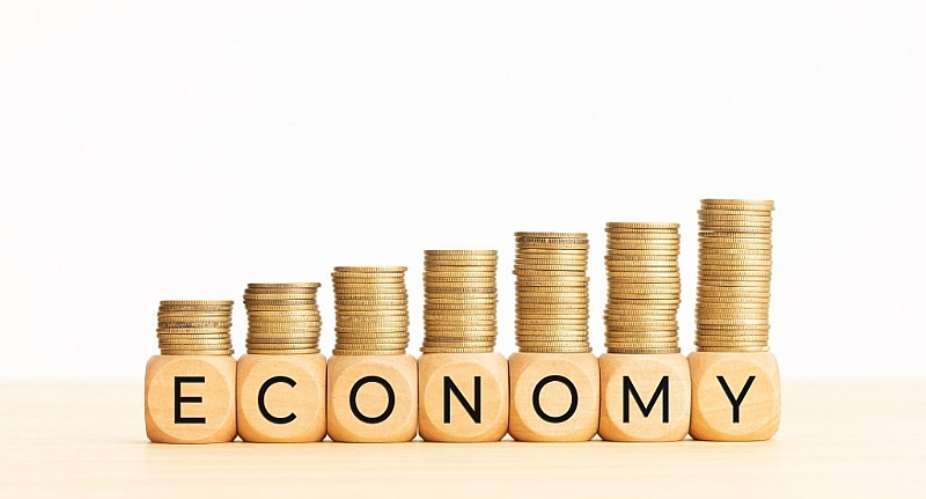Introduction
In the quest for economic stability and growth, developing nations often find themselves at a crossroads. The decision to seek assistance from the International Monetary Fund (IMF) comes with a mix of hope for financial rescue and concern over stringent policy impositions. Ghana, a country celebrated for its rich culture and significant strides in economic development, faces this dilemma. The involvement of the IMF in Ghana has been a topic of extensive debate, highlighting the intricate balance between securing immediate financial stability and pursuing long-term sustainable development goals.
The Nature of IMF Involvement in Ghana
Ghana's economic narrative has been marked by periods of significant challenges, including high debt levels, inflation, and fiscal deficits. These challenges have necessitated multiple engagements with the IMF, seeking financial bailouts accompanied by a set of conditions aimed at stabilizing the economy. The IMF's role, fundamentally, is to ensure global economic stability, offering financial assistance to countries in distress, contingent on implementing a series of economic policies and reforms.
IMF Policies: A Closer Look
The IMF policies enforced in Ghana primarily revolve around fiscal austerity, public spending cuts, and structural reforms intended to stabilize the economy and foster a conducive environment for growth. These measures, though aimed at ensuring financial discipline, often spark controversy regarding their impact on the broader socio-economic landscape, particularly on sustainable development initiatives.
The Impact on Sustainable Development
The austerity measures and fiscal constraints imposed by the IMF have profound implications for sectors critical to Ghana's sustainable development. Reduced public spending affects healthcare, education, and infrastructure development—areas essential for long-term economic resilience and growth. Additionally, these constraints limit Ghana's capacity to invest in renewable energy and sustainable agriculture, pivotal for environmental sustainability and economic diversification.
Economic Reforms and Structural Adjustments: Pros and Cons
While the economic reforms and structural adjustments demanded by the IMF aim to stabilize the economy in the short term, their long-term effects are a subject of intense debate. Critics argue that such measures can stifle economic growth by limiting government spending and investment in critical sectors. However, proponents contend that these reforms lay the groundwork for sustainable economic management and growth.
Ghana's Response and Strategies for Sustainable Development
Despite the challenges posed by IMF policies, Ghana has been proactive in navigating these complexities while striving towards its sustainable development goals. The country has embarked on initiatives aimed at enhancing economic resilience, diversifying its economy, and promoting sustainable practices within its agricultural and energy sectors.
International Perspectives and Comparative Analysis
A comparative look at other countries' experiences with the IMF reveals a mixed bag of outcomes. Some nations have successfully leveraged IMF programs to stabilize their economies and spur growth, while others have struggled with the long-term sustainability of such reforms. These experiences offer valuable lessons for Ghana in balancing IMF conditions with sustainable development objectives.
Conclusion
The IMF's involvement in Ghana is emblematic of the broader challenges faced by developing countries in the global economic landscape. While the financial support and policy guidance from the IMF are invaluable for immediate stability, the pursuit of sustainable development requires a nuanced approach that balances short-term economic reforms with long-term growth and resilience strategies. As Ghana continues on its path, the journey is a testament to the nation's resolve to forge a sustainable future, even amidst the complexities of global finance and economic policy.
FAQs Section
What makes IMF policies a "double-edged sword" for countries like Ghana?
IMF policies provide crucial financial support but impose conditions that can restrict public spending in vital development sectors.
Can Ghana achieve sustainable development while adhering to IMF restrictions?
Yes, but it requires strategic planning and the implementation of initiatives that balance economic reforms with investment in sustainable development.
Are there examples of countries that have successfully balanced IMF policies with sustainable development?
Countries like Rwanda have demonstrated that it's possible to navigate IMF conditions while investing in sustainable growth and development strategies.
About Author
I have a Doctorate in International Economic Law from Zhongnan University of Economics and Law and a Master of Law from Central China University. Currently pursuing a Master’s in Economics at Claremont Graduate University, I focus on global commerce and finance challenges. Through my blog, I propose data-driven policy reforms to enhance prosperity. Research interests include fiscal responses to crises, central banking, global supply chains, and financial inclusion. I aim to bridge theory and social progress through vibrant policy dialogues. My blog covers topics like industrial policy, infrastructure development, and global supply chain strategy.





 Chasing third Olympic gold: for Kipchoge, the road starts in Kenya's Rift Valley
Chasing third Olympic gold: for Kipchoge, the road starts in Kenya's Rift Valley
 S. Africa building collapse kills four, traps dozens: police
S. Africa building collapse kills four, traps dozens: police
 Kenya Airways says to resume flights to Kinshasa after staff freed
Kenya Airways says to resume flights to Kinshasa after staff freed
 Junta-led Chad counts votes in first for coup-hit region
Junta-led Chad counts votes in first for coup-hit region
 President Akufo-Addo appoints Joyce Adjoa Agyeiwaa as Birim Central MCE
President Akufo-Addo appoints Joyce Adjoa Agyeiwaa as Birim Central MCE
 Cedi depreciation has been lower under NPP administration – Bawumia
Cedi depreciation has been lower under NPP administration – Bawumia
 Akufo-Addo has been vindicated in selecting me as his Vice President – Dr. Bawum...
Akufo-Addo has been vindicated in selecting me as his Vice President – Dr. Bawum...
 AstroTurf Project Sabotage: Asunafo North MP accuses NDC PC Haruna Mohammed
AstroTurf Project Sabotage: Asunafo North MP accuses NDC PC Haruna Mohammed
 Election 2024: I’m ready to serve Ghana with my heart, energies – Bawumia
Election 2024: I’m ready to serve Ghana with my heart, energies – Bawumia
 We saved Ghana $19million in 2020 elections – EC
We saved Ghana $19million in 2020 elections – EC
